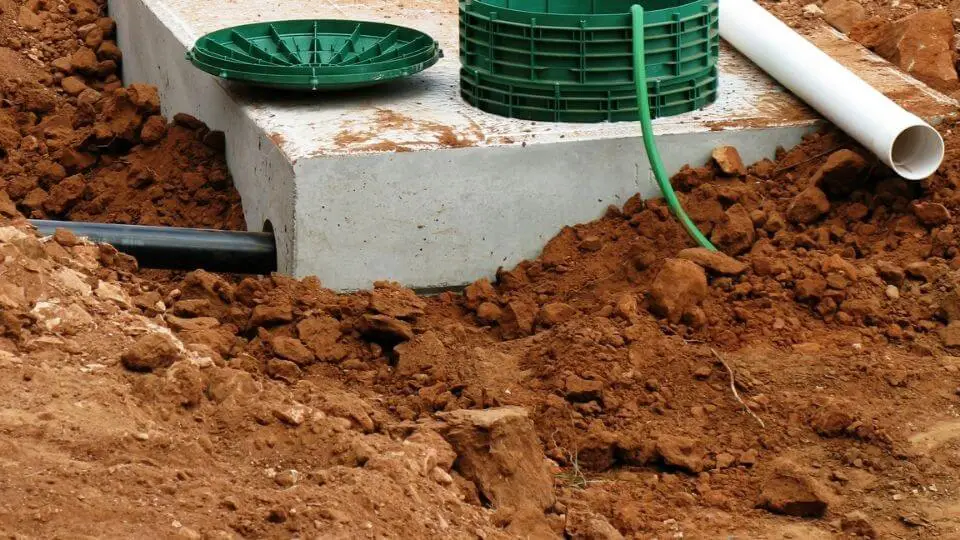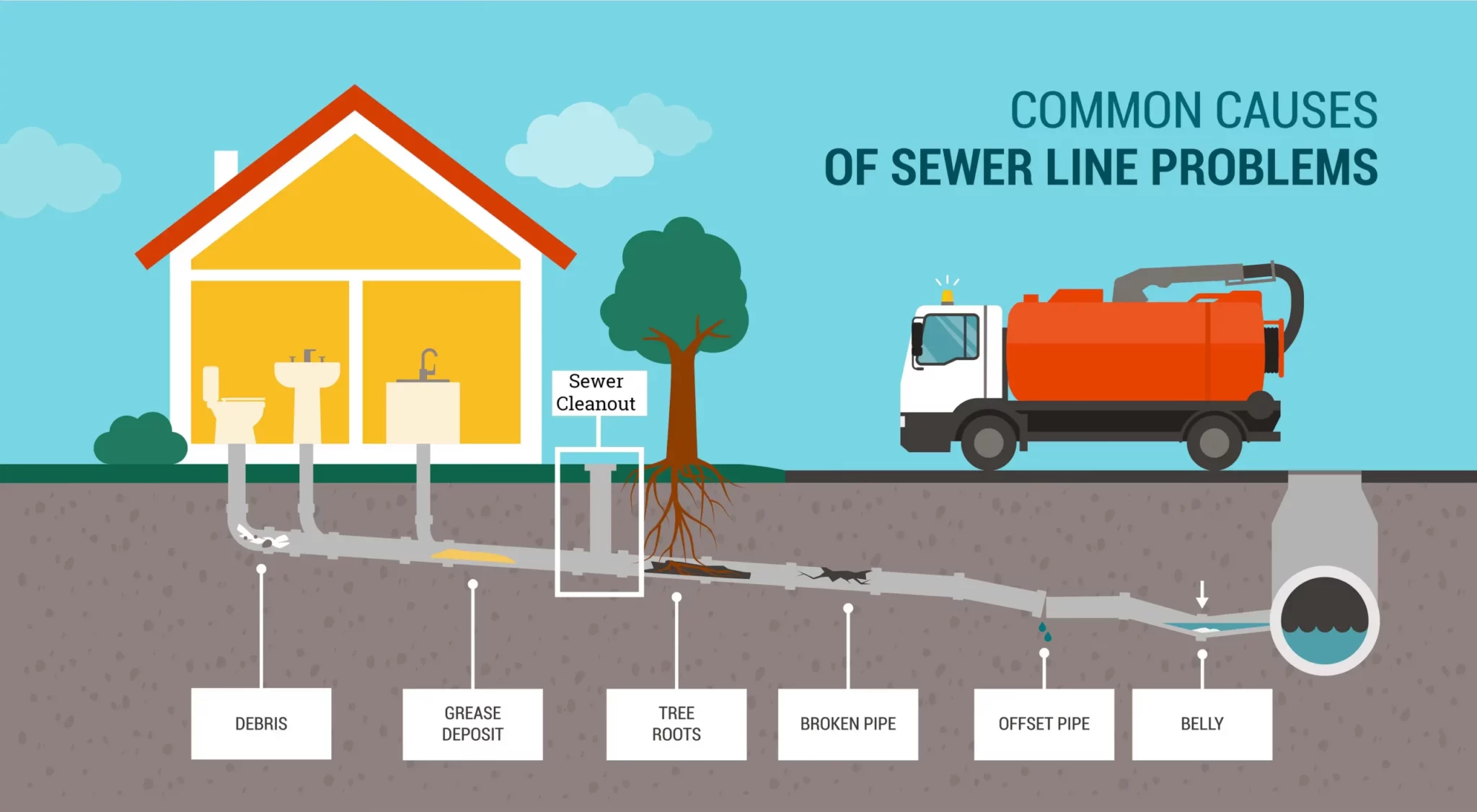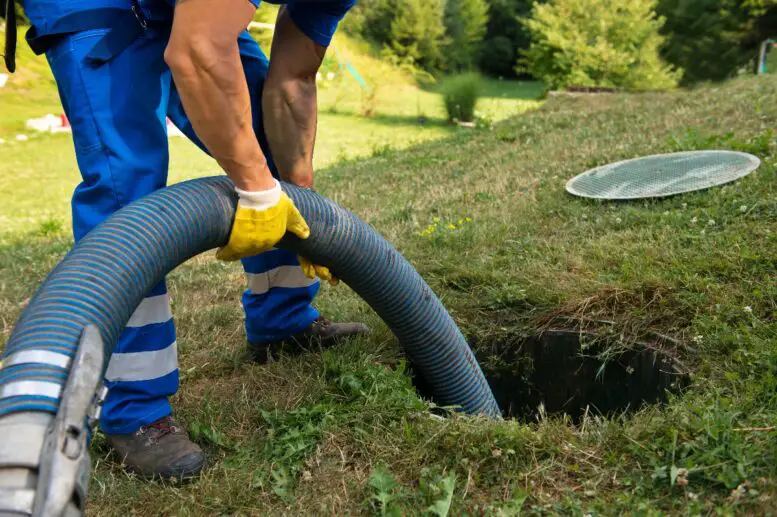In this article, we will compare septic vs sewer systems, including their differences in treatment methods, maintenance requirements, and cost.
This article will provide a comprehensive overview of the pros and cons of each type of system, allowing homeowners to make informed decisions about their wastewater management needs.
Septic vs Sewer

Septic systems and sewer systems are two different types of wastewater management systems that are used to treat and dispose of wastewater. While both septic and sewer systems have the same purpose, they have different methods of treatment and disposal, as well as different maintenance requirements.
Understanding the differences between septic and sewer systems is important for homeowners, especially those who are considering purchasing a new home or are in the process of building a new home.
Homeowners have to choose between private sewer or septic tank, and each option has its own advantages and disadvantages.
In some areas, homeowners don’t have access to a municipal sewage system. This makes the septic tank an excellent solution and millions of households are relying on it. [1]
Read Also: Does Every House Needs a Septic Tank
How do they work?

Septic systems are decentralized wastewater treatment systems that are commonly used in rural areas where a sewer system is not available. The system consists of a septic tank and a drain field.
The septic tank is designed to separate solids and liquids, allowing the liquids to flow out into the drain field where they are further treated by natural processes.
On the other side, sewer systems are centralized wastewater treatment systems used in city areas. The system collects wastewater from homes and businesses and transports it through a network of pipes to a central treatment plant.
The wastewater is treated using different methods, such as physical, chemical, and biological processes.
Septic vs Sewer costs breakdown

The cost of a septic system versus a sewer system varies depending on a number of factors, including the size of the home, the type of system being installed, and the local cost of labor and materials. Here is a rough estimate of the costs involved with each type of system:
Septic System:
- Installation: The cost of installing a septic system ranges anyway from $3,000 to $15,000 or even more, depending on the size of the home and the type of system being installed.
- Maintenance: The cost of maintaining a septic system ranges from $500 to $1,000 per year, including regular pumping and inspections. Price is also corelated with your living location. [2]
Sewer System:
- Connection Fees: The cost of connecting to a public sewer system ranges from $1,500 to $5,000 or more, depending on the distance from the home to the nearest sewer line.
- Monthly Service Fees: The cost of monthly sewer service fees ranges from $50 to $150 or more, depending on the local utility rate. [3]
It’s important to note that while the upfront cost of a septic system may be higher, the long-term cost of a sewer system may be more expensive due to monthly service fees. On the other hand, a septic system requires more frequent maintenance, which can add up over time.
It’s also important to consider the potential costs of repairing or replacing either type of system if it fails. In general, the cost of repairing a failed septic system is often more expensive than the cost of repairing a failed sewer line.
However, the cost of repairing a failed sewer line can be substantial, especially if the line runs under a roadway or other infrastructure.
When comparing the costs of septic and sewer systems, it’s important to consider all of the costs involved, including upfront costs, maintenance costs, and potential repair costs, in order to make an informed decision.
Which option enables you to save money?
Septic tank vs sewer cost can be very important, especially when you are on a tight budget.
In this debate, septic tank probably wins because it enables you to save money in multiple ways:
- Installing a septic system costs significantly less than installing sewage pipes;
- Septic systems are more cost effective when the property is larger than one acre;
- You avoid monthly costs associated with municipal sewage systems;
- They last for a long time, with some tanks known to last as long as 40 years. So, even if you need to budget for tank replacement, this only happens once or twice in a lifetime.
Septic vs sewer costs indicate that septic is more affordable for one more reason. When you own your septic system, you become more responsible about water use.
Reducing water consumption decreases the frequency of tank pumping. By using water more wisely, you are protecting the environment. [4]
What does septic sewer maintenance consist of?

One of the drawbacks of using a septic sewer is that you will have to deal with its maintenance. In order to maintain your septic system functional, you will need to regularly take the following actions:
- Regular inspections
The frequency at which you will have to inspect your septic system depends on its type. Gravity systems need to be inspected every three years. Mound and sand filter systems require annual inspection. Proprietary systems like aerobic treatment unit or membrane bioreactor also require annual inspection. [5]
- Pumping your septic tank
How often you pump your septic tank depends on your water consumption levels. The more people using your system, the more frequent you’ll have to pump it. You should never ignore clear signs of a full septic tank.
- Preventing hazard
People, especially children, and pets can fall into tanks that are not secured. Always make sure access lids are not deteriorated in order to prevent hazard from happening.
- Using water efficiently
A leaky faucet can waste as much as 200 gallons of water per day. This is about the daily water consumption of a family comprised of three members. [6]
All the water is sent down the drain in your septic system. The more water gets there, the more often you will have to pump the septic system. This is important to know if you would like to reduce your sewer bill.
There are multiple methods for saving water:
- Using high-efficiency toilets that use 1.6 gallons of water or less per flush;
- Installing faucet aerators and shower flow restrictors;
- Selecting the proper load size each time you use your washing machine.
- Protecting your septic tank from damage
The following good practices will help maintain your septic tank in excellent condition:
- Flushing only human waste and toilet paper;
- Not pouring chemicals down the drain;
- Not parking cars on your drain field or septic tank lid;
- Not using septic tank additives;
- Not draining water from hot tubs into your septic system.
Should you avoid a home with a septic system?
Home value septic vs sewer is a big dilemma, especially when city sewer is also available in your area.
There are some benefits that come with a septic system:
- You can address issues immediately because you are the one tasked with maintaining it;
- You avoid the cost of using a public sewer system;
- Installing a septic system is cheaper compared to having sewer lines installed. This usually happens when you own a large plot of land and setting up the sewer connection requires infrastructure;
- Can be eco-friendly by releasing water into the nearby soil and feeding plants;
- Last for 25-30 years when maintained properly.
Drawbacks of a septic system include:
- Needing to pump out the septic tank regularly;
- Having to get septic system inspections every year or two;
- Being more careful about the items you flush;
- Not being able to use a garbage disposal under your kitchen sink;
- Not planting trees near the septic system to avoid root damage.
A septic system can increase property value when it brings more benefits than drawbacks.
A septic system can increase your property value when the property is surrounded by a lot of land. Also, when the property cannot be connected to a city sewer, having a septic tank is obviously a valuable addition.
But when city sewer is available, having a septic tank can deter potential customers. People don’t want the hassle of maintaining a septic tank when looking for their dream home. Thus, a home connected to a sewer line is seen as more valuable.
Buying a home with a septic tank may not be the ideal situation for house hunters. You never know exactly the condition of the sewer. At the same time, replacing an old tank costs money and causes damage to landscape and property surroundings.
Read Also: “Belly In Sewer Line” – How To Fix It?
Which option is better for the environment?
Septic vs sewer environment can be a huge decision factor for homeowners. Well and septic vs city water and sewer are different solutions. Yet, in the end they do almost the same thing.
Both systems collect wastewater and filter it.
A septic tank collects water from your drain pipes. Solid matter ends up at the bottom, forming a layer of sludge. Grease rises on top and forms what is known as the scum layer. Between these two layers the relatively clean water sits. The water is slowly released in the surrounding soil.
When the sludge layer becomes too thick, the homeowner hires a vacuum truck to drain the tank.
Community sewer systems are not much different. Homes are connected by pipes to the community treatment plant, where wastewater is filtered and returned to natural course water.
Septic tanks actually have a smaller environmental impact because less energy is used to pump water at a large distance.
Also, a leaky sewage pipe from the city sewer can contaminate the environment for a long time before being observed. If a septic system pipe leaks, the contamination is limited to your property.
On the other hand, not cleaning and maintaining a septic tank can cause pollution to surrounding groundwater. Septic tanks are excellent solutions as long as they are maintained and work properly.
FAQ
- What is a private sewer?
What does septic connected mean? Most times, it refers to a household being connected to its own septic tank.
In some cases, it means your home’s drain line is connected to a private sewer. A private sewer is a sewer not owned and cared for by the local sewerage company. Multiple properties can be connected to a private sewer, owned by the property owners themselves.
- Who is responsible for the private sewers used by multiple properties?
This depends on the area where you live. Legislation and particular situations differ from state to state.
In some countries, water and sewerage companies have been made responsible for private sewers in the last years. Otherwise, private sewers are the responsibility of private owners.
Passing the responsibility to sewerage companies eases the burden on property owners. They no longer have to care for these pipe systems, which can be difficult and costly.
- Are you connected to your private sewer?
If you are the only property using it, you are responsible for it. If multiple properties are using it, the responsibility is a joint one. You can find out more information by contacting the local sewerage company.
- Do I need to have my septic tank connected to public sewer?
It depends on your local regulations. In many states, property owners are required to connect to the sewer system. This needs to happen after a certain time period after the sewer service becomes available.
These aspects are usually included in city codes. Low interest loans to finance connection costs are sometimes provided. Some property owners are offered the possibility to delay connection in case of financial difficulties.
- Connecting your drain system to the city sewer is compulsory?
This suggests that public sewer is considered a superior option.
The reason why homeowners are encouraged to do this is protecting groundwater. By limiting and controlling the injection of wastewater into the ground, groundwater quality is preserved. Not all septic systems are able to filter waste water and only send clean water into the surrounding soil.
Bottom Line
Choosing between a septic system and sewer system ultimately comes down to a matter of your living location. Septic systems are a cost-effective and environmentally friendly option for those in rural areas, but require careful maintenance to avoid failure. On the other hand, sewer systems offer more reliability but may come with a higher cost and greater environmental impact.

Michael Davis is a heating & plumbing expert who currently works as independent contractor in SC. He also writes for Plumbertip.
For almost 10 years he worked on various plumbing tasks across South Carolina.



